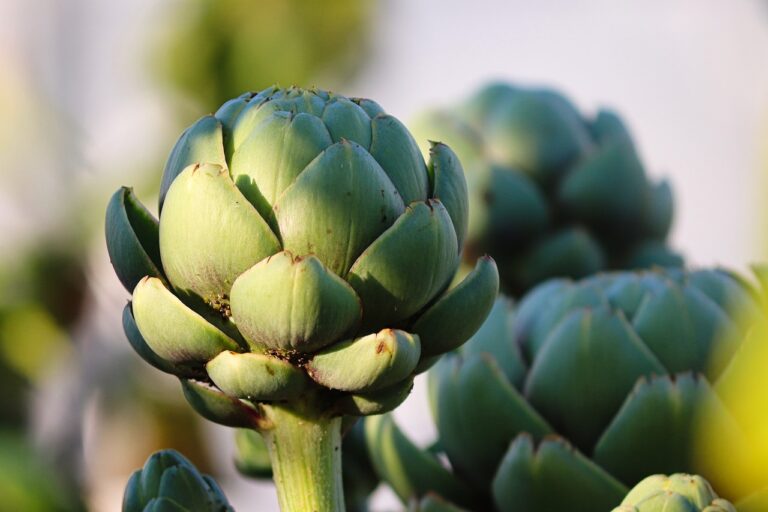The Health Benefits of Marjoram: Digestive Aid and Pain Relief: Laser book 247, Silverexchange, 11xplay pro
laser book 247, silverexchange, 11xplay pro: Marjoram is a popular herb with a wide range of health benefits. Not only does it add flavor to dishes, but it also provides various medicinal properties that can improve overall well-being. In this article, we will explore the health benefits of marjoram, focusing on its ability to aid digestion and provide pain relief.
What is Marjoram?
Marjoram, also known as Origanum majorana, is a herb that belongs to the mint family. It is native to the Mediterranean region and is widely used in cooking and traditional medicine. Marjoram has a sweet and slightly citrusy flavor, making it a popular addition to soups, stews, and sauces.
Health Benefits of Marjoram
1. Digestive Aid
One of the most well-known health benefits of marjoram is its ability to aid digestion. Marjoram has been used for centuries to alleviate symptoms of indigestion, bloating, and gas. It contains compounds that help stimulate the production of digestive enzymes, which can improve the breakdown of food and promote better digestion.
2. Pain Relief
Marjoram also possesses analgesic properties, making it an effective natural remedy for pain relief. Whether you suffer from headaches, muscle aches, or menstrual cramps, marjoram can help alleviate discomfort and promote relaxation. Its anti-inflammatory properties can also reduce swelling and inflammation in the body.
3. Respiratory Support
Marjoram is a popular remedy for respiratory conditions such as coughs, colds, and allergies. It acts as a natural expectorant, helping to loosen mucus and phlegm in the lungs and airways. Marjoram’s antispasmodic properties can also help relieve coughing and wheezing, making it easier to breathe.
4. Immune Booster
The high levels of antioxidants in marjoram help strengthen the immune system and protect the body against infections and diseases. Regular consumption of marjoram can help ward off colds, flu, and other common illnesses. Its antibacterial properties can also help fight off harmful bacteria and keep your immune system strong.
5. Stress Relief
Marjoram is known for its calming and sedative effects, making it a great natural remedy for stress and anxiety. Its soothing aroma can help relax the mind and body, promoting a sense of calm and well-being. Whether you use it in aromatherapy or consume it as a tea, marjoram can help reduce stress and improve overall mental health.
6. Antioxidant Properties
Marjoram is rich in antioxidants, which help protect the body against free radicals and oxidative stress. Free radicals are unstable molecules that can damage cells and lead to chronic diseases such as cancer and heart disease. By incorporating marjoram into your diet, you can boost your antioxidant intake and support overall health and longevity.
7. Anti-inflammatory Effects
Chronic inflammation is linked to a variety of health conditions, including arthritis, heart disease, and autoimmune disorders. Marjoram has potent anti-inflammatory properties that can help reduce inflammation in the body and alleviate symptoms of inflammatory conditions. Regular consumption of marjoram can help improve joint health, reduce pain, and prevent chronic inflammation.
How to Use Marjoram
There are several ways to incorporate marjoram into your diet and daily routine:
– Add fresh or dried marjoram to soups, stews, and sauces for a flavorful boost.
– Infuse fresh marjoram leaves in hot water to make a soothing tea.
– Use marjoram essential oil in aromatherapy diffusers or massage oils for stress relief.
– Mix marjoram oil with a carrier oil and apply topically to sore muscles or joints for pain relief.
– Sprinkle dried marjoram on roasted vegetables or meats for added flavor and health benefits.
FAQs
1. Is marjoram safe for everyone to consume?
While marjoram is generally safe for most people, individuals who are pregnant, breastfeeding, or taking medications should consult with a healthcare provider before using marjoram as a remedy. Some people may also be allergic to marjoram, so it’s essential to test for any adverse reactions before using it regularly.
2. How much marjoram should I consume daily to reap its health benefits?
There is no specific recommended daily intake of marjoram, as it varies depending on individual health needs and preferences. Start by incorporating small amounts of marjoram into your diet and gradually increase as needed. If using marjoram essential oil, follow the instructions on the label for safe use.
3. Can marjoram interact with medications?
Marjoram is considered safe for most people when used in culinary amounts. However, if you are taking medications or have underlying health conditions, it’s crucial to consult with a healthcare provider before using marjoram in larger quantities or as a supplement. Some medications may interact with marjoram, so it’s essential to discuss potential risks and benefits with a medical professional.
In conclusion, marjoram is a versatile herb with numerous health benefits, ranging from aiding digestion to providing pain relief. By incorporating marjoram into your diet and daily routine, you can take advantage of its medicinal properties and improve your overall well-being. Whether you use it in cooking, aromatherapy, or as a natural remedy, marjoram is a valuable addition to any holistic health regimen.







